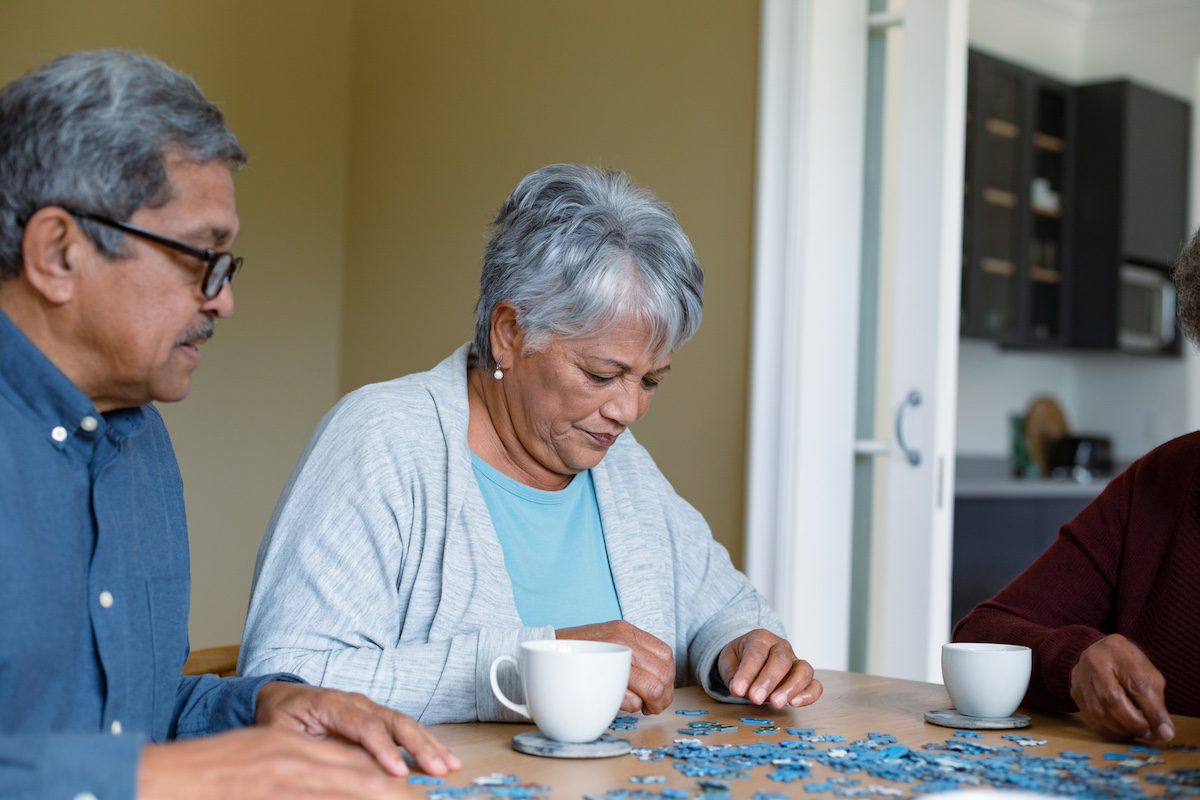Aging is an inevitable part of life, and as individuals grow older, maintaining social connections becomes increasingly important for overall well-being.
While physical health often takes center stage in discussions about aging, the impact of social connections on seniors’ mental, emotional, and even physical health cannot be overstated.
In this blog post, we will explore the profound effects of social connections on the aging process and the role that community plays in fostering a fulfilling and vibrant life for seniors.
The Importance of Social Connections
As people age, they may face various challenges such as retirement, loss of loved ones, and changes in physical health. These changes can lead to feelings of isolation and loneliness, which, in turn, can have detrimental effects on both mental and physical health.
Numerous studies have highlighted the importance of maintaining social connections for seniors, as these connections have been linked to a variety of positive outcomes.
One key aspect of social connections is the impact on mental health. Seniors who engage in regular social interactions often experience lower rates of depression and anxiety.
Socialization provides an avenue for emotional support, creating a sense of belonging and purpose in the lives of older individuals. It also helps in combating cognitive decline, as social engagement stimulates the brain and promotes mental agility.
Furthermore, social connections have a direct influence on physical health. Studies have shown that seniors with strong social ties tend to have lower blood pressure, reduced risk of cardiovascular diseases, and even improved immune system function.
Regular social activities also encourage physical activity, contributing to better mobility and overall fitness.
The Role of Community in Aging Well
While individual relationships are essential, the broader concept of community is equally crucial for seniors. A supportive and inclusive community can provide a network of resources, services, and social opportunities that contribute to a higher quality of life for older individuals.
One way communities can support seniors is by creating age-friendly environments. This includes accessible infrastructure, transportation options, and public spaces designed to accommodate the needs of older adults. An age-friendly community fosters a sense of belonging and ensures that seniors can actively participate in various activities, reinforcing their social connections.
Moreover, community-based programs and organizations play a vital role in addressing the unique challenges faced by seniors. These can include support groups, educational workshops, and recreational activities specifically tailored to older individuals.
Such initiatives not only provide valuable information and resources but also create a sense of camaraderie among seniors who share similar experiences.
Technology’s Role in Fostering Social Connections
In our increasingly digital age, technology has become a powerful tool in connecting seniors with their communities.
Social media platforms, video calls, and online forums offer new avenues for communication, enabling seniors to stay in touch with family and friends, even if they are physically distant.
Additionally, technology can facilitate access to information, services, and entertainment, enhancing the overall well-being of seniors.
However, it’s essential to acknowledge that not all seniors are comfortable or familiar with technology. Bridging the digital divide requires efforts from communities and organizations to provide education and support, ensuring that seniors can harness the benefits of technology to enhance their social connections.
Promoting Intergenerational Connections
An enriching social life for seniors extends beyond interactions within their age group. Intergenerational connections, where older individuals engage with younger generations, can be mutually beneficial.
Programs that encourage intergenerational activities, such as mentoring, volunteering, or shared learning experiences, contribute to a sense of purpose for seniors while fostering understanding and respect across age groups.
Intergenerational connections also combat ageism by breaking down stereotypes and showcasing the diverse strengths and experiences of older individuals. This not only benefits seniors but also promotes a more inclusive and compassionate society.
Overcoming Barriers to Social Connections
Despite the numerous benefits of social connections for seniors, various barriers can hinder their ability to engage with their communities. Mobility issues, transportation challenges, and limited financial resources are common obstacles that many seniors face.
Communities must address these barriers by implementing accessible transportation options, organizing community events in easily reachable locations, and providing affordable social activities.
Additionally, raising awareness about the importance of social connections and actively combating ageism can contribute to creating a more supportive environment for seniors.
Education campaigns that emphasize the value of older individuals in our communities can challenge stereotypes and promote a culture of respect and inclusion.
The Importance of Connection During Hospice Care
In the realm of healthcare, especially in the context of hospice care, the significance of fostering meaningful connections cannot be overstated.
Hospice care is a compassionate approach that focuses on enhancing the quality of life for individuals facing terminal illnesses and their families. In this challenging and often emotionally charged period, the value of human connection becomes paramount.
It goes beyond the traditional medical model and delves into the realm of emotional support, providing solace and understanding during life’s most delicate moments.
Connecting with patients on a personal level allows healthcare providers to address not only the physical aspects of their condition but also their emotional and spiritual needs. It creates an environment where individuals facing the end of life can find comfort, share their thoughts, and be heard with empathy.
The importance of connection during hospice care extends beyond the patient, influencing the well-being of their families and caregivers, as they navigate the complex emotions that come with saying goodbye.
In essence, these connections form the foundation of a holistic and compassionate approach to end-of-life care.
Final Thoughts
As the global population continues to age, the significance of social connections for seniors becomes increasingly evident. The power of community in fostering a fulfilling and vibrant life for older individuals cannot be overstated.
By recognizing the importance of social interactions, supporting age-friendly environments, leveraging technology, promoting intergenerational connections, and overcoming barriers, we can create communities where seniors can age gracefully, surrounded by a network of meaningful relationships.
In doing so, we not only enhance the well-being of our older population but also contribute to the creation of more compassionate and inclusive societies.


